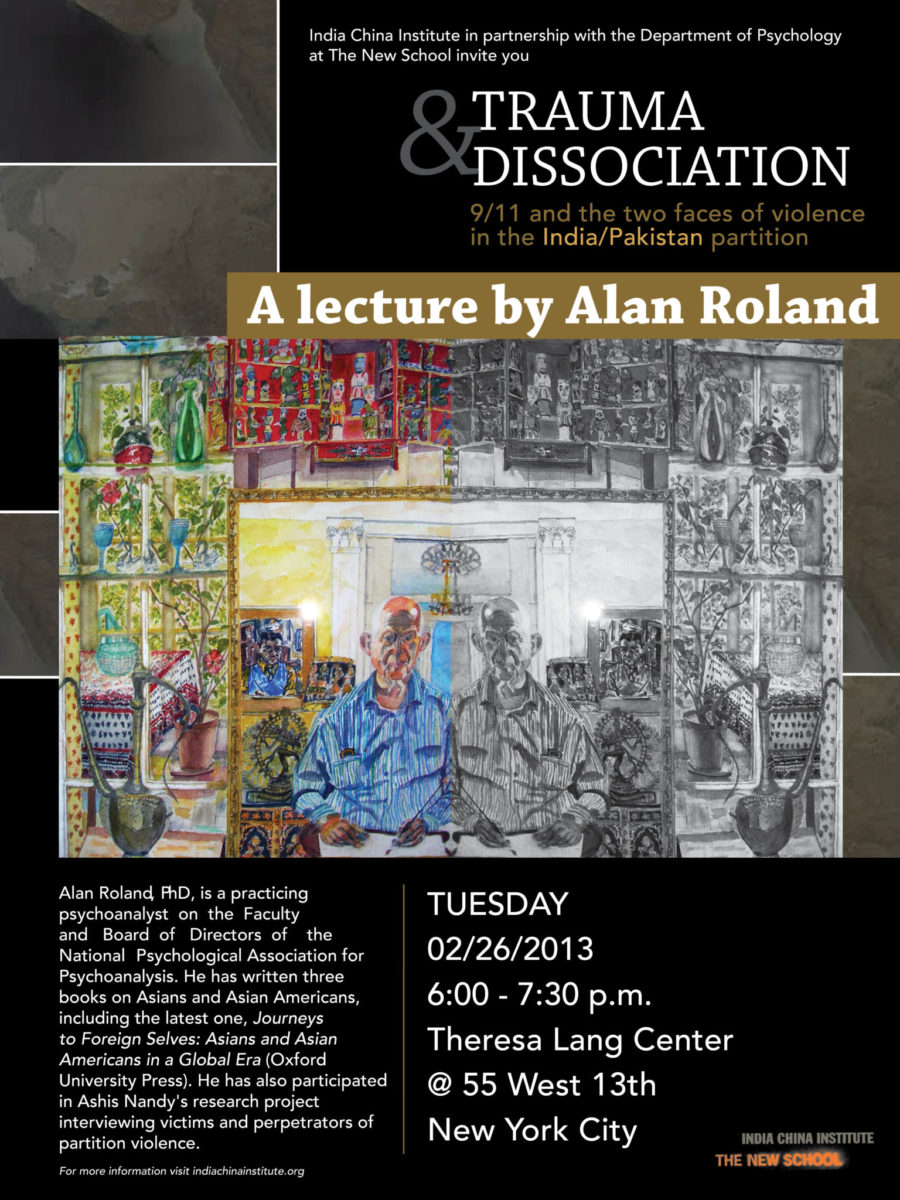
Trauma & Dissociation
February 26, 2013 , 6:00 pm – 7:30 pm

Trauma & Dissociation: 9/11 and the two faces of violence in the India/Pakistan partition
While the scope of destruction of 9/11 and of the India/Pakistan Partition in 1946-48 can hardly be compared, they nevertheless have in common trauma and dissociation. In 9/11 both therapists and patients were equally affected. Dr. Alan Roland, psychoanalyst, will speak both of his own reactions and those of his patients, how current trauma arouses past traumas, and how paranoid anxieties are aroused in many people. He will give specific examples of both.
While reams have been written about Partition, not until the 1990s has there been systematic study of the psychological effects of the two to three million killed in communal riots, 16-18 million refugees, 100,000 women raped, and 30,000 women abducted to be married by the other side. The aftermath of Partition violence is still causing tremendous tensions and conflicts between India and Pakistan.
Building on the work of Jayanti Basu, a Kolcata psychoanalyst, Dr. Roland will cite case material from two kinds of violence: 1) interviews with two brothers and their wives, the former as boys having been on a train from Pakistan where only 250 out of 5,000 persons survived a massacre, and 2) patients of families who were able to leave the Punjab well before widespread violence occurred. The differences in repercussions are dramatic but both categories were deeply affected. The familial effects of trauma of South Asians will be contrasted with the more individualistic emphasis on trauma in the United States after 9/11.
About Alan Roland
Alan Roland, Ph.D., is a practicing psychoanalyst on the Faculty and Board of Directors of the National Psychological Association for Psychoanalysis. He has written three books on Asians and Asian Americans, including the latest one, Journeys to Foreign Selves: Asians and Asian Americans in a Global Era (Oxford University Press). He has also participated in Ashis Nandy’s research project on interviewing Victims and Perpetrators of Partition Violence.
